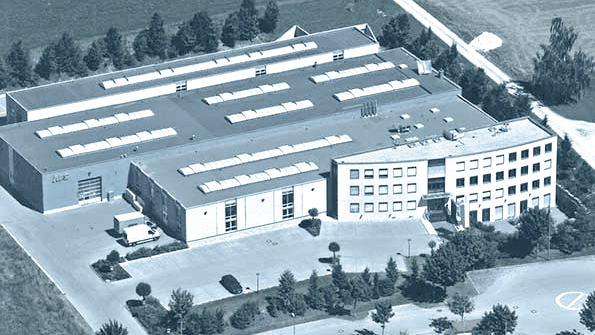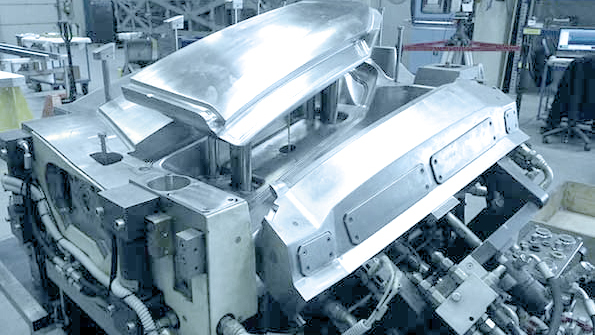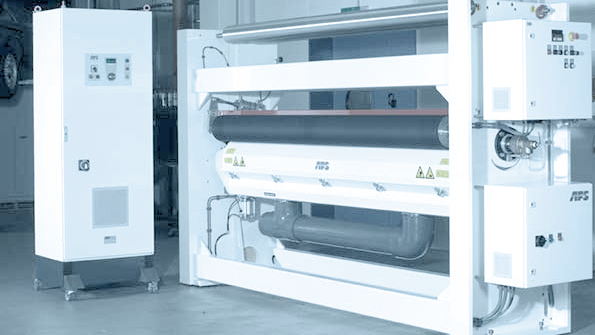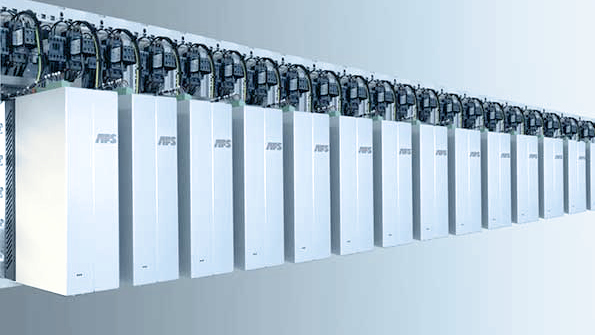Top-quality manufacturing processes
Tebis Consulting at AFS Entwicklungs + Vertriebs GmbH
Company
AFS Entwicklungs- und Vertriebs GmbH
Location
Horgau, Germany
Focus
Consulting on information flow and process efficiency
Benefits:
- Efficient process analysis
- Implementable measures
- Better information flow, faster processes
Sector
Machinery and equipment
Consumer products
Published
2014

Interviewee: Wolfgang Häge, Head of IT
Everything works much better now.
Tebis Consulting at AFS Entwicklungs + Vertriebs GmbH
The German machine manufacturer AFS in Horgau near Augsburg provides systems for surface treatment, for example of packaging. Packaging requirements are extremely high: it must be durable, ensure freshness, and also feature appealing colors and designs. Similarly, AFS management requires top quality from their own work and products. That was enough reason to carefully scrutinize the processes within the company – for the benefit of their customers, among other things.

For 28 years, AFS has been manufacturing corona systems using the discharge between ground and electrode to treat packaging surfaces so that selected colors will adhere. Today the company is an industry leader that has sold more than 2,500 systems worldwide. Gerhard Arlt, co-founder and owner of AFS, places great value on offering highly reliable, innovative and technologically advanced products instead of "me-too" versions. This level of quality has its price.
At the same time, the market puts pressure on pricing. This means that AFS needs to be able to withstand price pressures without reducing their high standards. With this in mind, management decided in late 2011 to examine the company’s internal processes to make them more efficient. One incentive was to pass along the cost savings to customers.
Consulting: Tebis Consulting

AFS has worked with Tebis for eight years. The CAD/CAM system is used for manufacturing planning and NC programming for manufacturing corona systems and their corresponding generators. The company’s close collaboration and good results with Tebis motivated AFS to partner with Tebis on their new project as well. The Tebis sales representative introduced Tebis Consulting and its head, Jens Lüdtke.
Thanks to his "systematic, structured and expert initial representation" – as Wolfgang Häge, IT Manager at AFS calls it – Lüdtke won over the AFS management. He began his analysis with a detailed review of the existing situation and then conducted an assessment of the company’s strengths and weaknesses. The objective of the first step was to localize and evaluate any process and productivity gaps and present them in monetary terms.
Analysis: Identifying lost opportunities

The analysis of AFS's processes revealed potential for optimization in areas such as the flow of information between design and mechanical manufacturing, version management and documentation of the designs, order planning and scheduling and delegation of responsibilities. A particularly painful and financially relevant issue was that the production department frequently had to query the design and order departments due to incomplete order documents and unclear version levels. The design department also had many questions for the sales department regarding the order details. These kinds of process interruptions hindered both design and manufacturing personnel in their value creation activities.
Tebis Consulting was able to attach a monetary value to the time lost by the Design department in performing nonessential tasks. The annual costs for incorrect assembly and subsequent modifications and for overtime assembly surcharges due to poor information flow were also quantified. Conversely, the consultants identified clear strengths in the high product quality, on-time delivery and the company’s modern machinery, among other things. The overall conclusion of the analysis at AFS was that the process – from order receipt to the completed machine – experienced unnecessary interruptions and could be optimized.
Corrective measures: information, automation, completion

In its presentation of the results, Tebis Consulting recommended a series of measures to AFS that would optimize the processes in the overall manufacturing as well as in upstream areas, from sales to order clarification to design. The recommendations included better control of the information flow from design to assembly, standardizing the design processes, working with order bills of materials, automatically triggering order processes, better utilizing the ERP system as a medium of information exchange and reducing the number of drawings, among many others.
The Tebis consultants then worked with AFS on two projects to improve the information flow between Sales and Design on the one hand and between Design and Manufacturing on the other. Required actions were described in specific terms, milestones were defined and responsibilities were outlined. It was important to understand and document the expectations of all stakeholders, and to take their concerns and resistance into account so that any obstacles could be addressed.
In short: "Everything works much better now"
If you ask Wolfgang Häge what has actually changed in the company, he replies: "Everything works much better now. Manufacturing and assembly have all the information they need. Both have access to a complete 3D model of the machine at all times. All details of each order are stored in the ERP system, and we have significantly fewer requests for clarification. Orders are processed automatically and on schedule. This is because, among other things, order bills of materials always contain complete documentation, including the design drawings. Order clarification and processing have significantly improved because we are defining more milestones. Problems are detected earlier, and can be resolved in a timely manner. One of the positive results is that Design is now required to ensure that the versions are current. Previously, Manufacturing had to find out which versions were valid, which resulted in process interruptions." As for Tebis Consulting services, Wolfgang Häge says: "Efficient work. Much was achieved in little time and at low cost. The consultants always acted in the best interest of the company."
Process optimization: it’s a process
At AFS today, employees view process improvement as an ongoing process. For example, they are continuing to optimize the use of the ERP system. The objective is to store all sales data in order to even better support initial project meetings by providing more information. The company examines its own processes more often than in the past. For owner Arlt and IT manager Häge, this is also a question of quality management, because the company wants to offer not only high-quality and error-free but also cost-effective products into the future.


